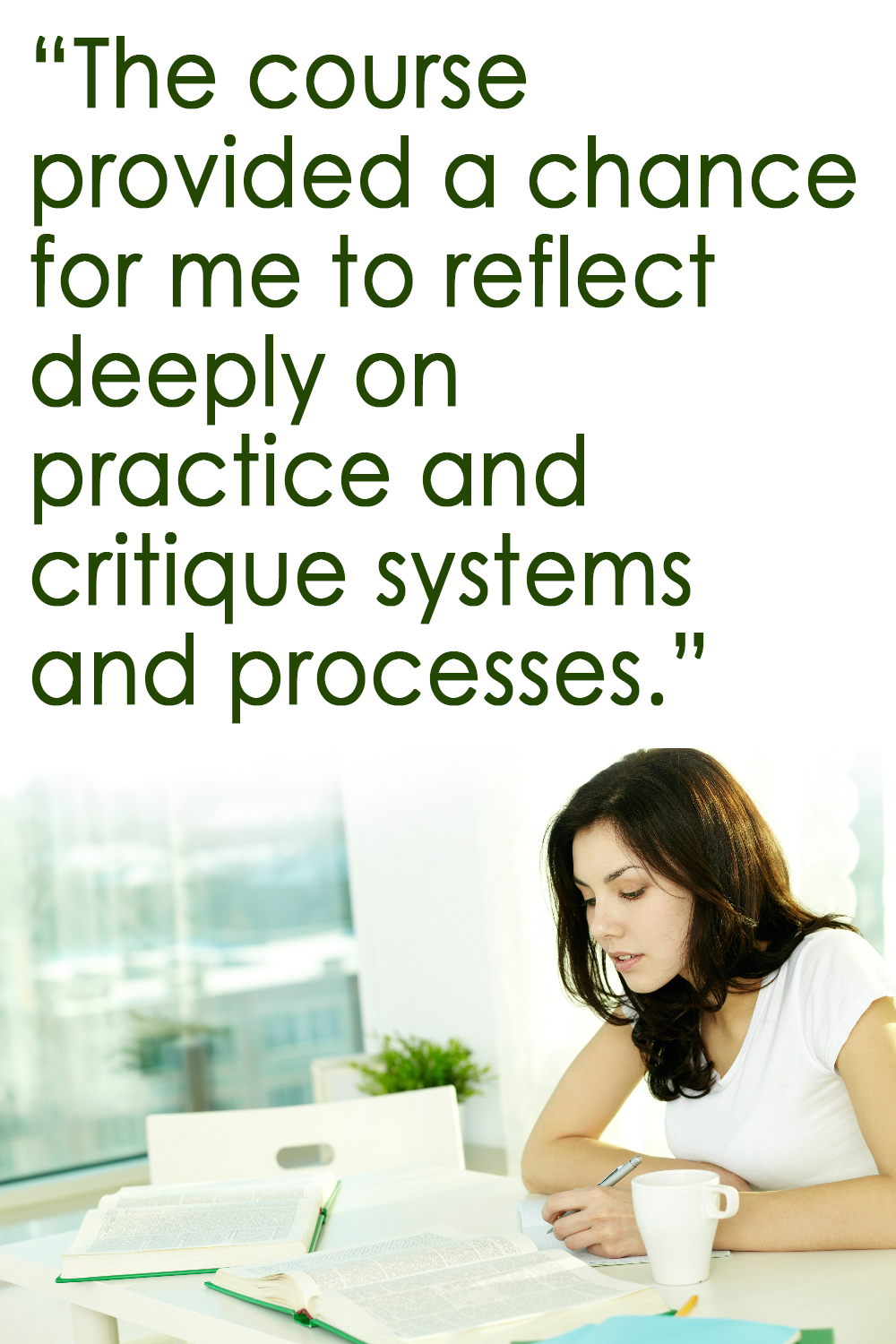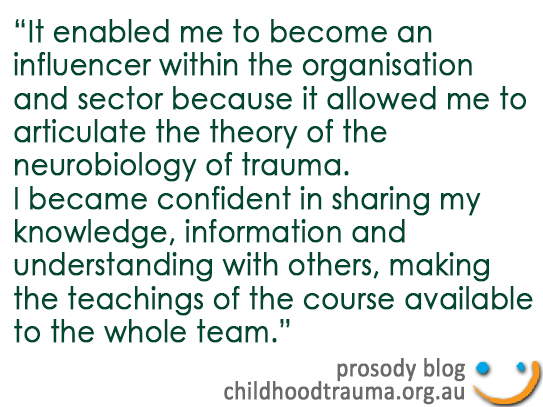
Does trauma-informed = stronger practice?

Deanna Rohrsheim is currently the Senior Online Educator at Relationships Australia (SA). Previously, she held the role of Team Leader for the Together 4 Kids program, a specialist child-focused service for the homelessness sector in South Australia. In 2013, with the support of her workplace, Deanna completed the Graduate Certificate of Developmental Trauma. This experience gave her the opportunity to strengthen her work practice and then to share her learning with many others across the state. In this interview, Deanna reflects on her experience of the course and the personal and professional outcomes that continue to influence her contribution to the sector.
Why were you interested in the Graduate Certificate in Development Trauma course?
As practitioners working with children and young people who have experienced complex relational trauma, I realised that my team and I only had a small window of opportunity in which to build safety and connect with our clients. I wanted to make sure that each moment we spent was intentional and lead to a clear therapeutic outcome. To do this well, I realised it was necessary for workers to have a deep understanding of the neurobiology of developmental trauma and know how to translate this knowledge into strategies that are transformative for the child. I believed the course would provide this understanding, so when I was offered the chance of a part scholarship; I was very keen to take it up.
What did you get out of the course?
 The Graduate Certificate in Developmental Trauma course provided a chance for me to reflect deeply on practice and critique systems and processes. I found the course promoted motivation through learning. I was able to create a vision for improvement with the support of the staff from the Australian Childhood Foundation who facilitated different aspects of the course and this allowed me to create better systems and stronger outcomes for children and young people.
The Graduate Certificate in Developmental Trauma course provided a chance for me to reflect deeply on practice and critique systems and processes. I found the course promoted motivation through learning. I was able to create a vision for improvement with the support of the staff from the Australian Childhood Foundation who facilitated different aspects of the course and this allowed me to create better systems and stronger outcomes for children and young people.
The curriculum is very authentic as you are required to use what you were doing in your workplace as the basis of the assignments and this style of learning suited me because I felt it helped me improve what I was doing in my role. Being with peers in the group was very enriching. The feedback I received on my assignments and ideas presented in the course definitely promoted my brain growth! I believe it built my confidence, affirmed my practice and increased my leadership capacity. Involvement in the course also strengthened my ability and commitment to building positive, productive relationships and partnerships with a range of agencies and caregivers to build a system of support around the child.
What have been the outcomes from the course?
I believe the therapeutic space is anywhere, anytime. It can be in the school, at a community centre, wherever it is possible to connect with the child or young person. The course gave me greater clarity around therapeutic work and intervention, particularly the need to create safety for children.
Clarifying the parameters of trauma informed practice helped me streamline processes, communication and decision making in the workplace. I felt it gave me the knowledge and confidence to hear team members and respond and intervene more effectively.
For my final assignment I developed a 2 day program about Child Focused Practice, creating the PowerPoint, Session Plan and materials for the sessions. The formal assessment of this work by the child protection experts and researchers at the Australian Childhood Foundation validated the work and provided an informal endorsement of the content, which strengthened my confidence when delivering the program to 300 workers from Housing SA.
I also developed resources for a Team Building Day, which included a trauma informed quiz. When working will others I was able to promote the use of Australian Childhood Foundation resources, SMART online modules, Making Space for Learning and share other useful resources with my colleagues. The course encouraged me to keep abreast with current research and development in the neurobiology of trauma and strategies for healing.
 Overall, the experience of gaining this qualification gave me the knowledge required to steer the path to incorporating trauma-informed practice. It enabled me to become an influencer within the organisation and sector because it allowed me to articulate the theory of the neurobiology of trauma. I became confident in sharing my knowledge, information and understanding with others, making the teachings of the course available to the whole team.
Overall, the experience of gaining this qualification gave me the knowledge required to steer the path to incorporating trauma-informed practice. It enabled me to become an influencer within the organisation and sector because it allowed me to articulate the theory of the neurobiology of trauma. I became confident in sharing my knowledge, information and understanding with others, making the teachings of the course available to the whole team.
In her current role, Deanna has developed 4 online modules to train and support homelessness and domestic violence sector workers to implement trauma informed practice:
- – The principles and philosophy of child focused practice
- Understanding developmental trauma,
- Child focused screening and assessment – Identifying risk and assessing need
- Child focused case work, case management and advocacy for the homelessness sector.
She is committed to spreading the word about the science behind child abuse and neglect, establishing a common language across the sector, and in this way, promoting positive organisational change.
